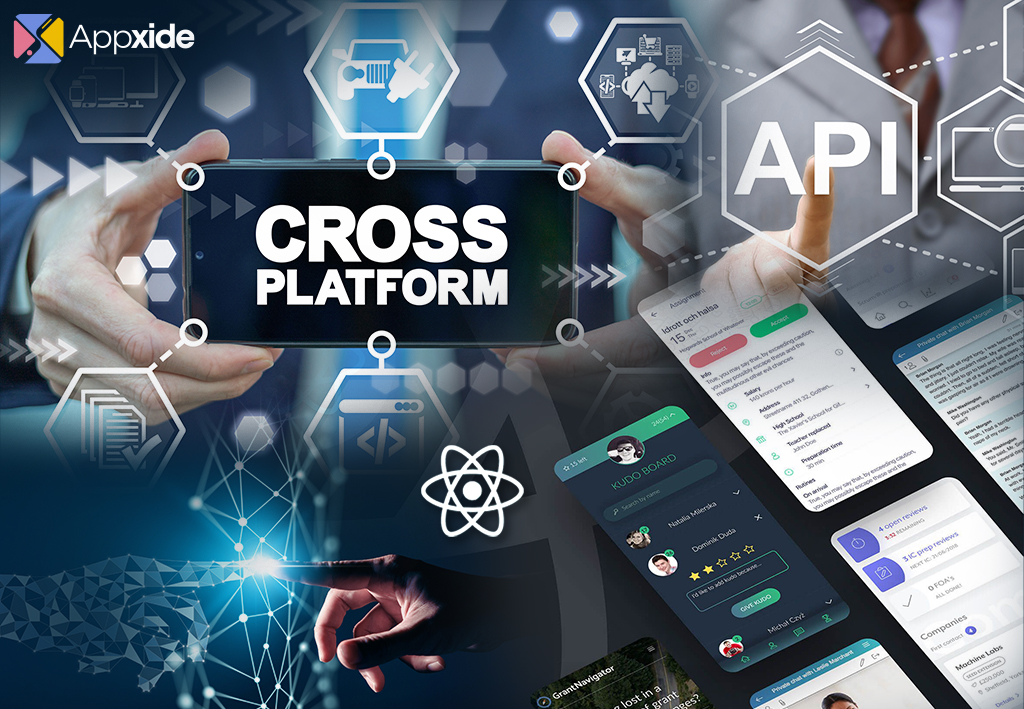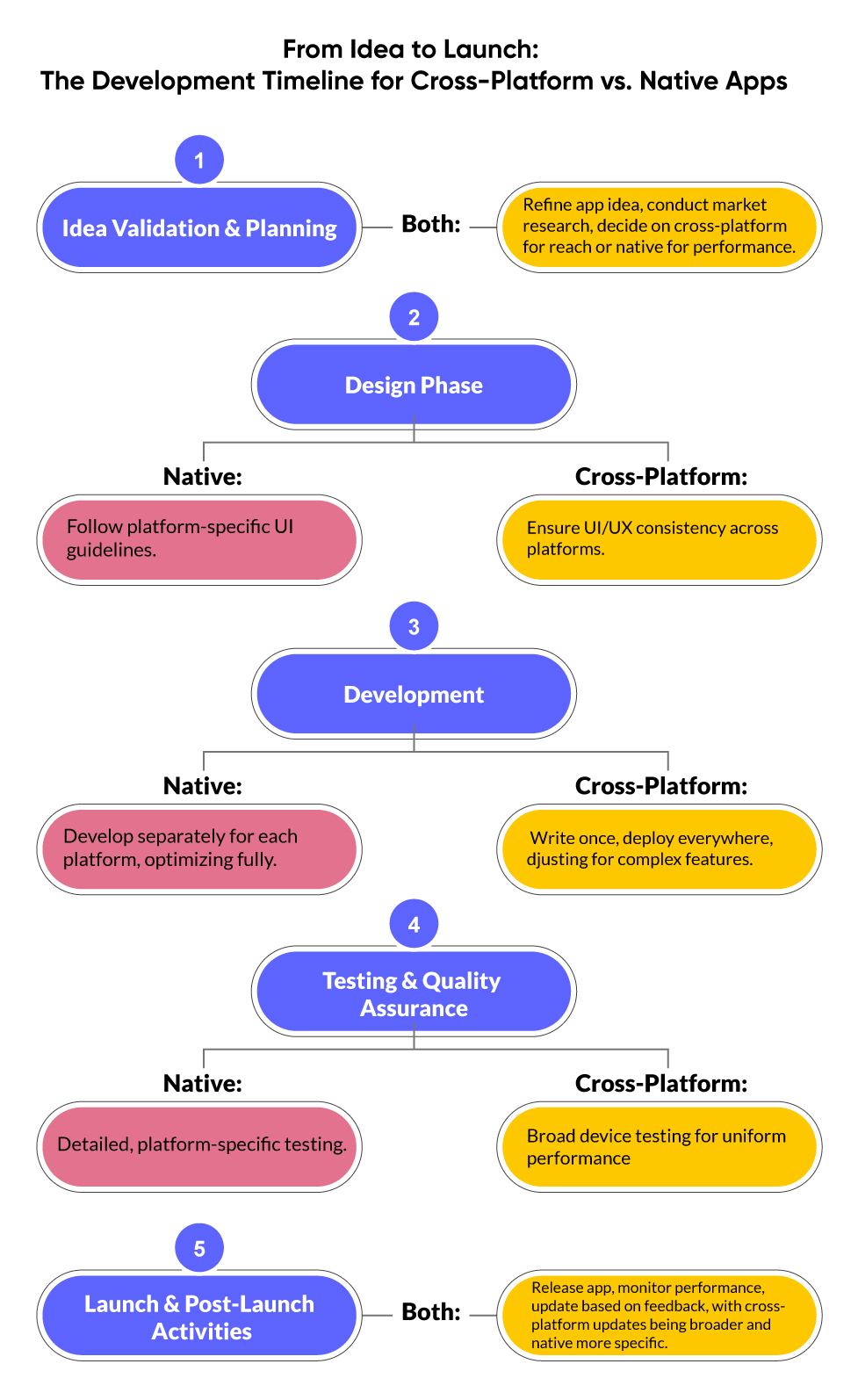Let's Get You Started

Let's Get You Started




Welcome to the world of mobile app development, where the debate of cross platform mobile app development vs native is as heated as a summer barbecue! Whether you’re a seasoned developer, a budding entrepreneur, or just a curious cat in the tech world, understanding the differences between these two approaches is crucial.
Native app development is like tailoring a suit – it’s custom-made for each platform. Whether it’s Android or iOS, native apps are developed specifically for one platform using languages and tools designed for that ecosystem. Think Swift or Objective-C for iOS, and Java or Kotlin for Android.
Cross-platform development, on the other hand, is the Swiss Army knife of app development. Write once, run anywhere – that’s the mantra. Tools like React Native or Flutter allow you to create apps that work across multiple platforms with a single codebase. It’s like speaking Esperanto in a room full of United Nations delegates!
Before you get into the cross platform mobile app development vs native android, it’s vital to pause and ponder some critical factors. These considerations will not only shape your development process but also significantly influence the success of your app. Let’s explore these key aspects to ensure you make an informed decision when it comes to native app vs cross-platform app development.
Who are your users? This is the cornerstone of your decision-making process. Different audiences have varying preferences and behaviors depending on the device they use. For instance, if your target demographic predominantly uses iPhones, a native iOS app might be more beneficial. On the other hand, if your audience is diverse in terms of mobile devices, cross-platform development could be the way to go.
What is the primary goal of your app? The complexity and functionality of your app can greatly influence your choice. Native development is often the preferred route for apps requiring intensive processing, sophisticated user interfaces, or extensive access to device-specific features like GPS, camera, or sensors. Conversely, for more straightforward, informational apps, cross-platform development can be a cost-effective and efficient choice.
The budget is critical in the decision-making process. Native app development typically requires a higher investment since you’re developing separate apps for each platform. Cross-platform development, with its shared codebase, can be more budget-friendly, reducing overall development costs. Assess your financial resources realistically and decide accordingly.
How quickly do you want your app to hit the market? In a fast-paced digital world, speed can be a game-changer. Cross-platform development usually allows for a quicker launch since it eliminates the need to create multiple versions of the app. If your strategy is to reach the audience swiftly, cross-platform might be your ally.
Consider the future – maintenance and scalability are crucial. Native apps require separate updates for each platform, which can be time-consuming and costly in the long run. Cross-platform apps offer easier maintenance due to their unified codebase. However, it’s also important to consider how scalable your app needs to be as it grows and evolves.
The availability and expertise of your development team are significant. Do your developers have experience in native development for iOS and Android, or are their skills more aligned with cross-platform technologies like React Native or Flutter? The learning curve for each approach varies, so align your choice with the strengths and capabilities of your team.
Every development path comes with its own set of testing challenges. Native apps require testing on a range of devices specific to each platform, which can be resource-intensive. Cross-platform apps, while needing tests across different platforms, reduce some of this complexity due to their shared codebase. Plan your QA strategy in line with the development approach you choose.
Last but not least, consider the app store approval process. Native apps, particularly for iOS, face a stringent review process but often yield a more stable product. Cross-platform apps might encounter challenges in meeting platform-specific guidelines. Familiarize yourself with the nuances of each app store’s requirements to avoid unexpected hurdles.

Native Apps: These are Usain Bolt – fast, efficient, and smooth. They are optimized for their specific platform, squeezing every bit of performance out of the device.
Cross-Platform Apps: More like a decathlete – versatile but not always the best in a specific discipline. They may sometimes lag behind in performance compared to their native counterparts.
Native Development: It’s a long journey. Developing for multiple platforms means maintaining separate codebases, which can be time-consuming and expensive.
Cross-Platform Development: This is where it shines. One codebase for all platforms means faster development and potentially lower costs.
Native Apps: These offer a top-notch user experience, with UI/UX that feels right at home on each platform.
Cross-Platform Apps: They’ve come a long way, but sometimes, they might just miss that native touch.
Native Apps: Full access to device APIs and features. It’s like having a VIP pass to a concert.
Cross-Platform Apps: They can still access most features, but sometimes they need a bit of extra help from native plugins.
Native Apps: Maintaining two different codebases can be like juggling flaming torches.
Cross-Platform Apps: Easier to maintain and update, thanks to the single codebase.
Native Development: Robust and mature, with extensive resources and support.
Cross-Platform Development: Rapidly growing, with an enthusiastic and supportive community.
When it comes to native app development, the iOS vs Android saga is a classic. Each platform has its quirks, user expectations, and design guidelines. Developing for both means double the fun (or trouble, depending on how you see it).
Pros: Massive user base, open system.
Cons: Device fragmentation can be a developer’s nightmare.
Pros: Uniform hardware and software, higher revenue potential.
Cons: Strict App Store guidelines, less flexibility.
Is there a middle ground? Yes and no. Some developers opt for a hybrid approach – cross-platform for the bulk of the app, with critical sections developed natively.
| Factor | Native App Development | Cross-Platform App Development |
| Performance | High | Moderate to High |
| Development Time | Longer | Shorter |
| Cost | Higher | Lower |
| User Experience | Excellent | Good to Excellent |
| Access to Device Features | Full | Moderate to Full |
| Maintenance | More Demanding | Less Demanding |
The mobile app development landscape is ever-evolving. With advancements in cross-platform tools and the growing power of smartphones, the gap between native and cross-platform is narrowing. Who knows, maybe in a few years, cross platform mobile app development vs native debate will be a thing of the past!
Q1: Can cross-platform apps perform as well as native apps?
A1: They’re getting there! Modern cross-platform tools have significantly improved performance, but native apps still have the edge in terms of raw performance.
Q2: Is cross-platform development cheaper than native?
A2: Generally, yes. Since you’re maintaining one codebase instead of two, it can save time and money.
Q3: Are native apps more secure than cross-platform apps?
A3: Not necessarily. App security depends more on the coding practices and protocols used than the development approach.
Q4: Can I switch from cross-platform to native later on?
A4: Yes, but it’s like moving houses – possible, but it requires effort and resources.
Q4: Which should I choose for my startup?
A5: It depends on your priorities, resources, and goals. If time-to-market and budget are tight, cross-platform might be the way to go. For high-performance, graphics-intensive apps, native could be better.
Whether you go native or cross-platform, it’s all about finding the right fit for your project. Both paths lead to Rome, just with different scenery along the way!

Welcome to Appxide, where innovation meets utility in the world of app development. Our mission is to craft cutting-edge digital solutions that simplify lives and spark connections. With a diverse portfolio that traverses multiple sectors, we are committed to excellence and user-centric design. Stay tuned to our blog for the latest in tech, insights, and the stories behind our projects. Dive into the future with us – where every app we create is a step towards the extraordinary.